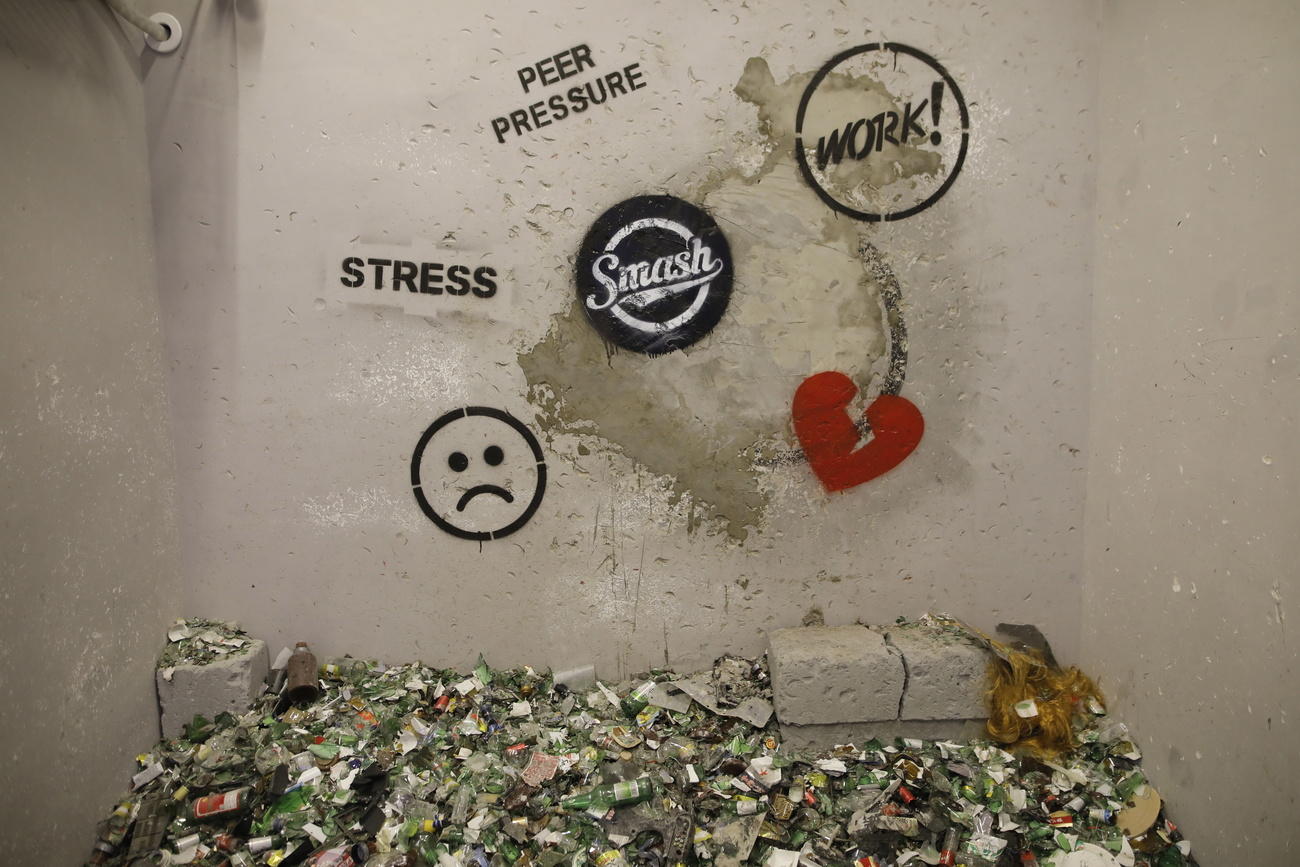Swiss remain stressed despite lockdown easing

Even after the step-by-step easing of the lockdown, many Swiss felt more stressed than they did before the Covid-19 pandemic, a survey by Basel University has found. The study also shows an increase in cases of depression.
Is my coughing a symptom? Would I survive an infection? How do I best prevent contagion? With such concerns flying around, it’s not surprising many people experienced stress during the coronavirus lockdown in Switzerland.
But even as measures to contain the pandemic were gradually being eased, many Swiss were still much more stressed than before Covid-19 appeared on the world stage. This is revealed in a comparison of two surveys by Basel University.
The first was done during the lockdown in early April; the second, between May 11 (when restaurants, among other establishments, could open again) and June 1. But despite the different time frames, the results were similar: during the lockdown, exactly 50% of respondents said they were more stressed than before the pandemic; and even after the easing, the figure remained at 40%.
The second “Swiss Corona Stress Study” by Basel University surveyed 10,303 people between May 11 and June 1, 2020. Respondents were from across the country, and answered anonymous questions on the website Coronastress.ch.
“Because of the form of data collection, in an online survey, this is not by definition a representative poll. That said, the sociodemographic features of those who took part cover a wide spectrum of the Swiss population,” the authors write.
“It amazed us that the figure was similar to during the lockdown,” Dominique de Quervain, who oversaw the study, told Swiss public television, SRF. “We would have imagined that in the period when restrictions were being eased, stress would also decrease considerably.”
De Quervain is the director of the Department for Cognitive Neuroscience and a member of the national Covid-19 Task Force.
“Among the main causes of the increase in stress – as before – are the insecurities caused by changes at work or in apprenticeships and a restricted social life,” the study’s authors wrote.
Marcel Tanner, president of the Swiss Academy of Sciences and leader of the public health experts’ group in the Task Force, sees such findings as key. “It is important that we also address psychological health problems when we look at the coronavirus crisis, because they determine how our social networks function and therefore our economy too,” he told SRF.
But the most recent survey also shows there were even some who experienced lower stress levels during and after the lockdown – as many as 32% said that this was the case.
Why? “The reduction in stress levels in these cases arose from the increased time for leisure and fewer commitments relating to work, school or private life,” the statement from Basel University says.
More cases of depression
Another survey finding was that people who suffered symptoms of depression before the crisis also experienced more severe symptoms during the easing period. According to the authors, previous underlying psychological problems – present before the coronavirus – increased the risk of developing heavy symptoms during the crisis.
According to the survey, around 3% of the population suffered from serious depression before the pandemic. The latest survey shows that proportion rose to 12% during the crisis.
Age of resilience
The authors also asked participants about their resilience – meaning their ability to ward off depressive symptoms. In particular, people of middle age and older (55 and above) and men accounted for a higher proportion of the group who had no significant symptoms of depression.
“This is amazing, because older people and men are particularly in danger if they fall seriously ill as a result of the virus,” the authors wrote.
Meanwhile, the second survey confirmed which group of people on average suffered lower increases in stress during the pandemic: those who had more time to spend on a hobby or a new project, and those who were physically active.

More
Coronavirus: the situation in Switzerland

In compliance with the JTI standards
More: SWI swissinfo.ch certified by the Journalism Trust Initiative











You can find an overview of ongoing debates with our journalists here . Please join us!
If you want to start a conversation about a topic raised in this article or want to report factual errors, email us at english@swissinfo.ch.